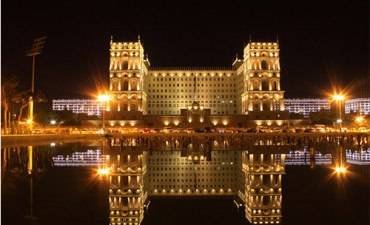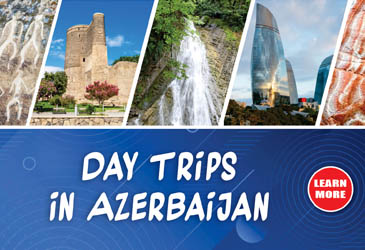Grave of Unknown Soldier
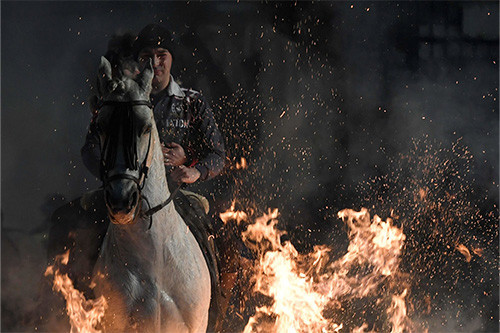 In all countries of the world where wars have ever been fought, there is a cultural phenomenon that is commonly called the Grave of the Unknown Soldier. In many cities there are similar monuments, for example, to unknown heroes of the First or Second World Wars.
In all countries of the world where wars have ever been fought, there is a cultural phenomenon that is commonly called the Grave of the Unknown Soldier. In many cities there are similar monuments, for example, to unknown heroes of the First or Second World Wars.
A memorial of unknown soldiers dedicated to the soldiers of the Turkish Guard who laid down their heads for their Azerbaijani brothers back in 1918 has been erected on the approach to the pass near the city of Shamakhi. And next to the road in the north of the Gobustan desert, travelers have been seeing a lonely grave for more than a hundred years. Two flags are flying above it: Turkish and Azerbaijani. This is the grave of an unknown Turkish guardsman who gave his life for the fraternal Azerbaijani people.
At that time, an attempt was made to seize Azerbaijani lands by the nationalist Dashnak Tsutyun party.
The Azerbaijanis were not ready for war at that time. Performing with edged weapons and hunting rifles against armored vehicles, we suffered defeat after defeat. Until the Anatolians came to the rescue.
Despite the fact that their country was torn apart by the civil war and the battles of the First World War, despite the fact that every soldier counted for the preservation of Turkish statehood, they are sending a corps to help us. And not a simple infantry, but a corps of selected Turkish guards, joined by local resistance forces and the Caucasian Muslim Army was formed. This is a legend about one of the Turkish Guards.
He lagged behind his own, waiting for the mail train in the village of Maraza, and on that summer night, illuminated by a full moon, he rode alone along the road of a deserted Gobustan. He was catching up with his squad, which was going to Absheron. They were facing a battle for Baku.
Suddenly, in the moonlight illuminating the bare hills, he saw horsemen. It was an enemy hundred – the remnants after the battle for Shamakhi. They had been hiding in the desert for a week and were now galloping towards Baku. They went straight to the rear of the Turkish Guards.
Wait until they go ahead? Galloping into the desert to find a shortcut to your own? No. And the full moon was sent to help him for a reason. He was taught to ride without hands for a reason. His ancestors had been shooting arrows on horseback for centuries for a reason. He decided to open the fight.
Grabbing his carbine from behind his back, he took the head of one of the riders in sight and pulled the trigger. The silence of the desert was broken by the crack of a shot, and the stricken enemy fell from the saddle. A second later, he fires a second bullet, followed by a third… and so the whole five-shot clip. Not a single bullet misses its target.
He turned his horse, changing his position so that the enemy would not find him by the sound of shots. They shoot where he is no longer there. After reloading his carbine, he sends five more messengers of death to those who previously thought that his brothers could be attacked with impunity. Now they will never be able to count anymore.
He shot off the last clips of the rifle and slung it over his shoulder on a tactical belt. Twenty shots–twenty dead. There was a revolver and six cartridges in the drum, so it’s time to go into a frontal attack. And he directs his fearless horse straight at the screaming and panicking crowd shooting from the sides. They don’t see him, but he sees them.
Fifty paces away, he takes his revolver out of its holster at a gallop and, without even aiming, strikes the first enemy to death. Four more fall after him, and he fires the sixth bullet at point-blank range. There is no time to hide the revolver in a holster and two more fall killed by blows with its handle to the temple. The revolver breaks, and this is for the best – if the enemy gets it, he will not be able to shoot from it.
– We are surrounded! – shouts one of the unfortunate fools, who will soon go to the next world. He doesn’t realize that the guardsman has let his horse run at full gallop around their frightened pack. They scream, shooting at each other, their horses stumble over corpses. Then he snatches a checker.
It came to him from his father, and to him from his grandfather, to whom the caliph himself gave it for his valor and skill as a swordsman. It was forged by the masters of Damascus five hundred years ago, its blade is merciless and greedy for enemy blood. And it gets what it wants. It will drink plenty of it for the next few minutes.
One head after another is blown away by backhand blows, the torsos cut from the shoulder to the stomach fall helplessly from the horses. That night, the last thing the enemies saw was lightning striking them. But it was a Damascus blade, illuminated by the full moon, descending with force on the crown and splitting the head into two parts.
Suddenly, a shot booms next to his face. An evil bullet hits the horse’s head. A faithful friend renders his master the last service before falling – he does not tip over on his side, he turns his front legs, falling forward, and the warrior, having freed his legs from the stirrups in time, runs down his withers straight. And strikes a fatal blow in the heart of the murderer of his comrade-in-arms.
He jumps on the first horse behind the rider and stabs him with his left hand with his own dagger. Someone else’s horse is trampling under him, unable to realize what is happening. A saber strike falls on him, which he repels. Dodges two more. The horse begins to understand him, they jump from plane to plane, changing the direction of the blows of the checker, but the animal is tired and too scared, it stumbles more and more often, and the enemies surround more and more densely.
The sound of a gunshot and the strongest blow hits his shoulder. But it was not for nothing that he was called Two-handed – he intercepts with his left hand a checker falling out of the right, a wave… and someone’s body falls to the ground. Another one falls behind him. He beats off the barrel of an enemy rifle aimed at his face and with the next swing of the saber puts the loser shooter on the rump of his horse.
But his strength is leaving him, he feels a prick under the shoulder blade, then another one from behind under the ribs. And another one… And the thunder of the shot with simultaneous pain in the right side. Another stab in the back, another in the neck, and he feels that the saber falls out of his hand, and he himself does not fall out of the saddle only because several enemy bayonets driven into his back lift him into the air.
He feels no pain. He feels joy and hears the battle cry and the sound of hooves from Maraza. “Allah is Great!” – the fighters from the Resistance who came to the rescue are shouting, coming closer and closer. The Dashnaks leave the body of the guardsman and scatter. The fighters shoot after them. Two approach the fallen warrior lying on the ground. They did not find a tag with his name on his wounded body, they found 70 enemies killed.
They buried him next to the road so that every passerby could pay a debt of honor to real military valor.
Now the modern Baku-Shamakhi highway runs a few dozen meters from this place. Passing cars, regular buses. People go on business and vacation to the north-west of the country, where the desert is replaced by the majestic mountains of the Greater Caucasus. And everyone who passes through here for the first time, seeing this lonely grave with two flags, wonders about its history.
Do not say about those who are killed in the way of Allah: “They are dead!” No, they’re alive! But you don’t feel it.
(Quran, chapter 2, verse 154)
The routes of tours of our company Azerbaijan Travel International are laid along this road. Each of our guests can pay tribute to the memory of the fearless unknown warrior, about whom there is a legend.
Tags: Azerbaijan , culture , Legendary
Recent Posts
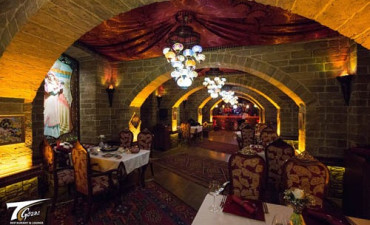
Buy any tour and get 15 percent discount in Baku restaurants
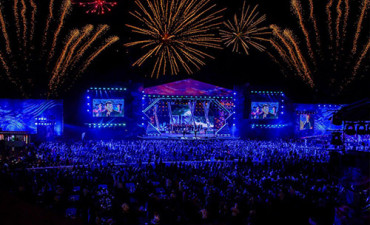
Festivals In Azerbaijan
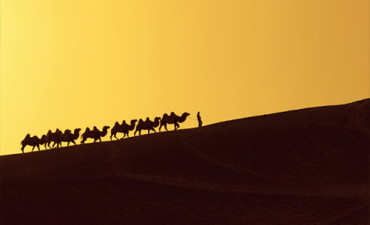
Great Silk Road In Azerbaijan
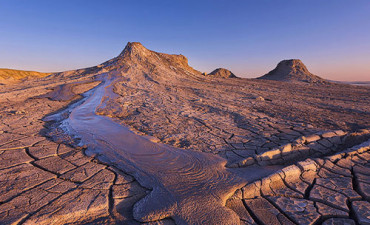
Guide to outdoor activities
